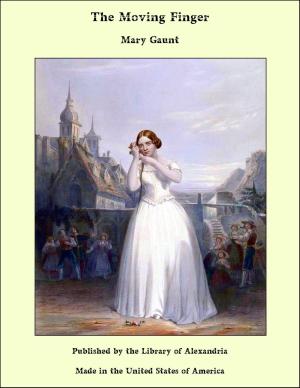Sarah Bernhardt as I knew her: The Memoirs of Madame Pierre Berton as told to Basil Woon
Nonfiction, Religion & Spirituality, New Age, History, Fiction & Literature| Author: | Basil Woon | ISBN: | 9781465627841 |
| Publisher: | Library of Alexandria | Publication: | March 8, 2015 |
| Imprint: | Language: | English |
| Author: | Basil Woon |
| ISBN: | 9781465627841 |
| Publisher: | Library of Alexandria |
| Publication: | March 8, 2015 |
| Imprint: | |
| Language: | English |
Never was more apt the German proverb, “Truth is its own justification,” than in the telling of the story of that most remarkable of women, Sarah Bernhardt. During her life, in spite of the fact that she enjoyed more widespread publicity than any other person, man or woman, remarkably little was known by the public of her real life story. The very extent of this worldwide publicity served, in fact, as a sort of smoke-screen to conceal the intimate personality of the woman it vaunted. To the playgoers of the world, and even to those who had never seen her act, Sarah Bernhardt was for ever acting a part. She shared her glory with the dozens of poets and playwrights whose inspired interpreter she was. The laurel wreath around her brow was of the same tinsel quality as the scenery which framed her personality. To the world, Sarah Bernhardt was the greatest tragedienne who had ever lived, and that was all. The “all,” you will say, was a very great deal. I grant you that; but when you have read this book I think you will say that the title of “great woman,” which Sarah Bernhardt in reality earned, expresses her true personality far better than that of “greatest actress.” It is hard to begin this work of telling the true, the intimate story of Sarah Bernhardt without laying oneself open to the charge of revealing secrets that were better left inviolate, of tearing down rather than building up the laborious character-structure of an international idol. But I refuse to allow these first pages to become a justification—the work itself will be that. What I am attempting now is simply an explanation. If, in the course of this book, certain episodes are recounted that may possibly wound the feelings of those who worshipped Sarah as an actress, I would point out that the enthralling story of her tremendous fight against the worst odds that ever faced a woman cannot be properly told if certain essential elements of her history are suppressed. Such elements, despite the character they seem to convey, are component parts of the amazing whole. We cannot reveal Bernhardt in her genuine greatness without revealing also certain things that in a less important biography had certainly better have been left unwritten. For seventy-nine years Sarah succeeded in concealing the facts of her birth. Yet more than thirty years ago she said to Madame Pierre Berton, to whose remarkable and faithful memory the facts of this biography are due, “I hope that, when I am dead, you, who are younger than I am, will reveal to the world the real Sarah—the Sarah whom the audiences never knew!” From time to time thereafter, throughout their long and intimate association, Sarah told Madame Berton the facts of her birth, of her childhood, of her absorbing up-hill battle towards celebrity and of her final conquest. These facts, together with matters of Madame Berton’s own observation, are contained in this book. Scrupulous to a fault, Madame Berton refrained from telling or publishing a word of what had been given her in confidence, until Sarah’s death released her from her promise, and at the same time put her under the immediate obligation of fulfilling her old friend’s wish and “revealing to the world the Sarah whom the audiences never knew.” A word about Madame Berton. She is the widow of Pierre Berton, the actor and playwright, who, before his marriage to her, was the adored intimate of Bernhardt. Their liaison, which is recounted hereafter, lasted two years, and even after they separated their friendship continued. It was Berton who convinced Duquesnel, the director of the Odéon, of Sarah’s genius as a tragedienne; it was Berton who encouraged her and taught her and who, more than any other man, was responsible for her early triumphs. It was Berton who stood beside her when all Paris sneered at and mocked her, and it was Berton who defended her when the co-directors of the Odéon wished to cancel her contract because of what they termed her “incorrigibility.”
Never was more apt the German proverb, “Truth is its own justification,” than in the telling of the story of that most remarkable of women, Sarah Bernhardt. During her life, in spite of the fact that she enjoyed more widespread publicity than any other person, man or woman, remarkably little was known by the public of her real life story. The very extent of this worldwide publicity served, in fact, as a sort of smoke-screen to conceal the intimate personality of the woman it vaunted. To the playgoers of the world, and even to those who had never seen her act, Sarah Bernhardt was for ever acting a part. She shared her glory with the dozens of poets and playwrights whose inspired interpreter she was. The laurel wreath around her brow was of the same tinsel quality as the scenery which framed her personality. To the world, Sarah Bernhardt was the greatest tragedienne who had ever lived, and that was all. The “all,” you will say, was a very great deal. I grant you that; but when you have read this book I think you will say that the title of “great woman,” which Sarah Bernhardt in reality earned, expresses her true personality far better than that of “greatest actress.” It is hard to begin this work of telling the true, the intimate story of Sarah Bernhardt without laying oneself open to the charge of revealing secrets that were better left inviolate, of tearing down rather than building up the laborious character-structure of an international idol. But I refuse to allow these first pages to become a justification—the work itself will be that. What I am attempting now is simply an explanation. If, in the course of this book, certain episodes are recounted that may possibly wound the feelings of those who worshipped Sarah as an actress, I would point out that the enthralling story of her tremendous fight against the worst odds that ever faced a woman cannot be properly told if certain essential elements of her history are suppressed. Such elements, despite the character they seem to convey, are component parts of the amazing whole. We cannot reveal Bernhardt in her genuine greatness without revealing also certain things that in a less important biography had certainly better have been left unwritten. For seventy-nine years Sarah succeeded in concealing the facts of her birth. Yet more than thirty years ago she said to Madame Pierre Berton, to whose remarkable and faithful memory the facts of this biography are due, “I hope that, when I am dead, you, who are younger than I am, will reveal to the world the real Sarah—the Sarah whom the audiences never knew!” From time to time thereafter, throughout their long and intimate association, Sarah told Madame Berton the facts of her birth, of her childhood, of her absorbing up-hill battle towards celebrity and of her final conquest. These facts, together with matters of Madame Berton’s own observation, are contained in this book. Scrupulous to a fault, Madame Berton refrained from telling or publishing a word of what had been given her in confidence, until Sarah’s death released her from her promise, and at the same time put her under the immediate obligation of fulfilling her old friend’s wish and “revealing to the world the Sarah whom the audiences never knew.” A word about Madame Berton. She is the widow of Pierre Berton, the actor and playwright, who, before his marriage to her, was the adored intimate of Bernhardt. Their liaison, which is recounted hereafter, lasted two years, and even after they separated their friendship continued. It was Berton who convinced Duquesnel, the director of the Odéon, of Sarah’s genius as a tragedienne; it was Berton who encouraged her and taught her and who, more than any other man, was responsible for her early triumphs. It was Berton who stood beside her when all Paris sneered at and mocked her, and it was Berton who defended her when the co-directors of the Odéon wished to cancel her contract because of what they termed her “incorrigibility.”















